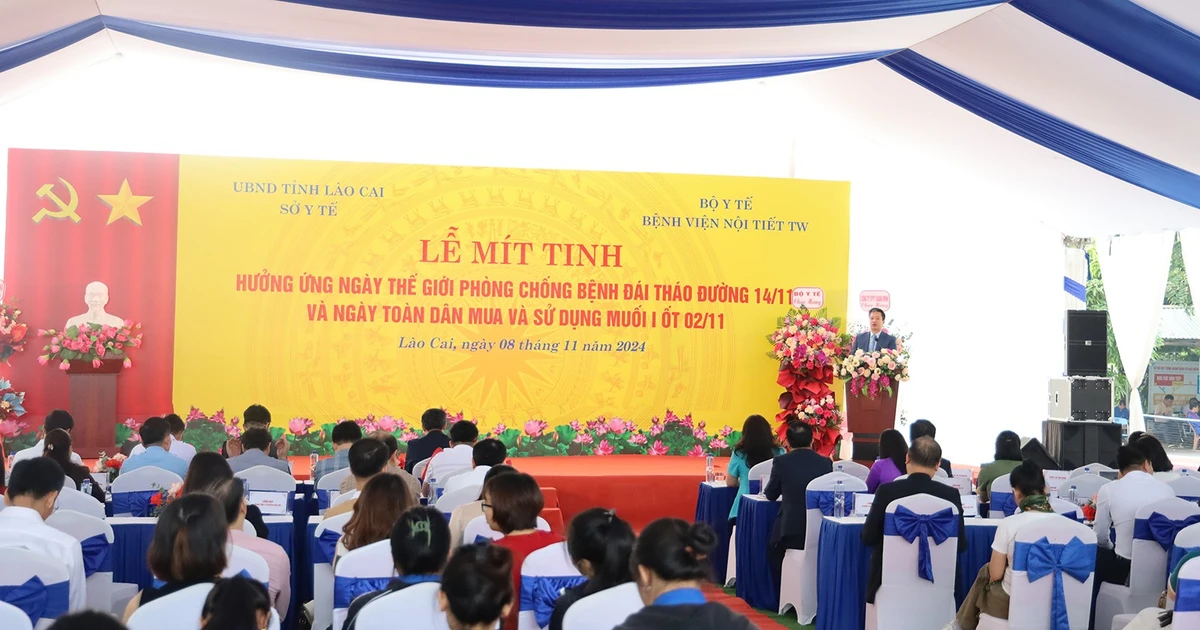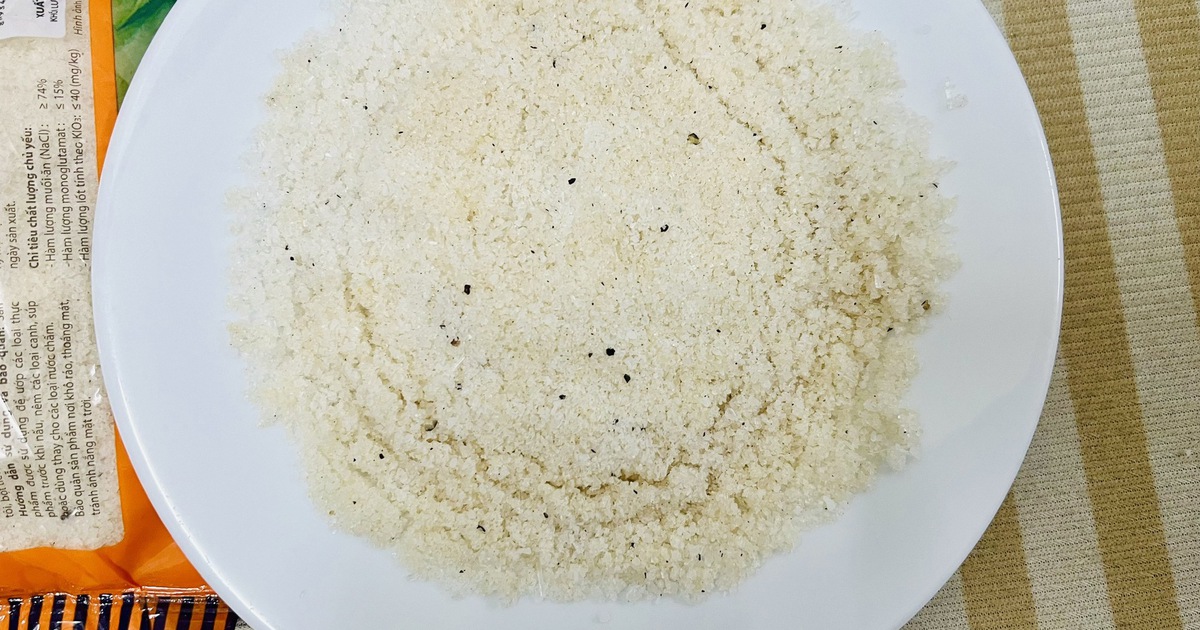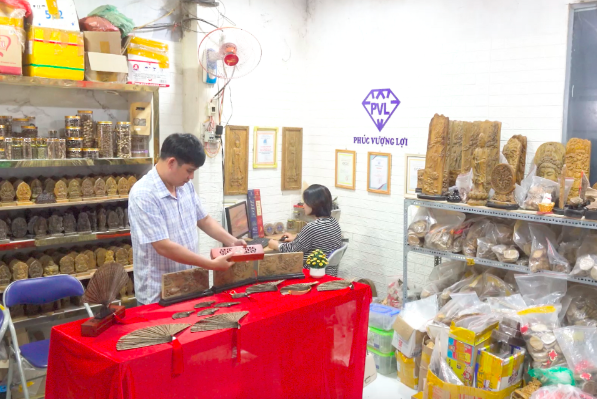(Dan Tri) - There is currently an opinion that the regulation requiring the entire population to use iodized salt in Vietnam will lead to the risk of hyperthyroidism or other diseases for people with excess iodine. According to the Ministry of Health, this is a misconception.
Vietnam is among the remaining 26 countries in the world that are iodine deficient.
On November 5, the Ministry of Health said that the arguments lacking scientific basis and evidence put forth by some individuals and businesses in recent times have caused public confusion and negatively affected the health sector's efforts in preventing and combating iodine deficiency disorders.
The Ministry of Health affirms that there is no concern regarding the public use of iodized salt, including iodized salt used in households and in food processing. In Vietnam, there has never been a case of people having excess iodine.
According to reports from the Central Endocrinology Hospital and the National Institute of Nutrition, Vietnam has not yet recorded any cases of patients with excess iodine.

Iodine deficiency in Vietnam is so serious that it has public health implications (Illustration: Columbia).
According to Associate Professor, Dr. Truong Tuyet Mai, Deputy Director of the Institute of Nutrition, the results of the 2019-2020 general nutrition survey showed that in all groups of subjects, the median urinary iodine level was lower than recommended. The percentage of people with urinary iodine concentration exceeding the threshold of 300ppm was 0% (threshold > 300ppm is the threshold for high urinary iodine).
This result confirms that the Vietnamese population still does not reach the recommended daily iodine intake. To date, there has been no medical literature mentioning the program of using iodized salt for the whole population (from 1994 to present) leading to consequences of thyroid disease.
According to the 2021 report of the Global Network for the Prevention of Iodine Deficiency Disorders, Vietnam is still among the remaining 26 countries in the world with iodine deficiency.
The results of the 2019-2020 general nutrition survey also showed that the median urinary iodine of children nationwide (over 6 years old) was 113.3mcg/l, mountainous children were 90mcg/l, and women of childbearing age were 98.9 mcg/l (while the WHO recommended level for these subjects is 100-199mcg/l).
Similarly, this figure in pregnant women is 85.3mcg/l (WHO recommended level is 150-249mcg/l).
Only 27% of households use qualified iodized salt, while WHO's recommendation is over 90%.
Thus, the median urinary iodine index and the household index using iodized salt that meets disease prevention standards are both at the lower risk level and do not meet WHO recommendations.
Iodine deficiency in Vietnam is so serious that it has public health implications. Currently, there is no scientific evidence that excess iodine causes thyroid cancer. According to WHO, after 5-10 years of regular iodine supplementation, the incidence of hyperthyroidism will decrease, corresponding to areas without iodine deficiency.
WHO and other research agencies emphasize that large-scale micronutrient fortification is an effective public health intervention to prevent micronutrient deficiencies.
In particular, it is emphasized that fortification of foods with micronutrients to address widespread micronutrient deficiencies globally does not result in any risk of toxicity or over-supplementation.
Ministry of Health proposes mandatory micronutrient fortification of food
In 2016, the Government issued Decree 09 on food fortification with micronutrients. During the implementation of the Decree, there were opinions that the use of iodine-fortified salt led to changes in product color, taste or had negative effects on consumers' health.
In 2017, the Ministry of Health issued an official dispatch stating that the Food Safety Department and the Legal Department would receive all information and feedback from businesses along with scientific evidence on the above issue.
However, for the past 8 years, the Ministry of Health has not received any scientific evidence from businesses related to this content. Thus, the inaccurate and unscientific recommendations of businesses before were obstacles, leading to a delay of up to 8 years in the implementation of Decree No. 09.
Also because of the business's recommendation, in 2018, the Government issued Resolution 19 to encourage food processing businesses to add this micronutrient to their products.
At the same time, the Ministry of Health was assigned to research, amend and supplement Decree No. 09 in the direction of only encouraging food processing enterprises to use iodized salt.
The Ministry of Health has conducted research and the results have shown that iodine deficiency among the population is still at the community level.
Therefore, WHO, UNICEF, the Global Iodine Network, HealthBridge Canada, the Ministry of Health and a number of health protection experts strongly recommend that the Government maintain the mandatory regulations on micronutrient fortification of food in Decree 09.
At the meeting with businesses on October 30, the Ministry of Health affirmed its readiness to coordinate with businesses to conduct field research at production facilities using iodized salt in food processing to clarify the impact of iodized salt on the businesses' products.
In case scientific evidence shows that the use of iodized salt in food changes the color, taste or has negative effects on consumers' health, the Ministry will propose that the Government exclude these products in the decree.
Source: https://dantri.com.vn/suc-khoe/bo-y-te-phan-bac-thong-tin-toan-dan-su-dung-muoi-i-ot-gay-doc-20241105092417309.htm



![[Photo] Vietnam shines at Paris International Fair 2025 with cultural and culinary colors](https://vstatic.vietnam.vn/vietnam/resource/IMAGE/2025/5/4/74b16c2a197a42eb97597414009d4eb8)
![[Photo] General Secretary To Lam receives Sri Lankan President Anura Kumara Dissanayaka](https://vstatic.vietnam.vn/vietnam/resource/IMAGE/2025/5/4/75feee4ea0c14825819a8b7ad25518d8)


![[Photo] Bus station begins to get crowded welcoming people returning to the capital after 5 days of holiday](https://vstatic.vietnam.vn/vietnam/resource/IMAGE/2025/5/4/c3b37b336a0a450a983a0b09188c2fe6)


















































































![[Video]. Building OCOP products based on local strengths](https://vstatic.vietnam.vn/vietnam/resource/IMAGE/2025/5/3/61677e8b3a364110b271e7b15ed91b3f)




Comment (0)